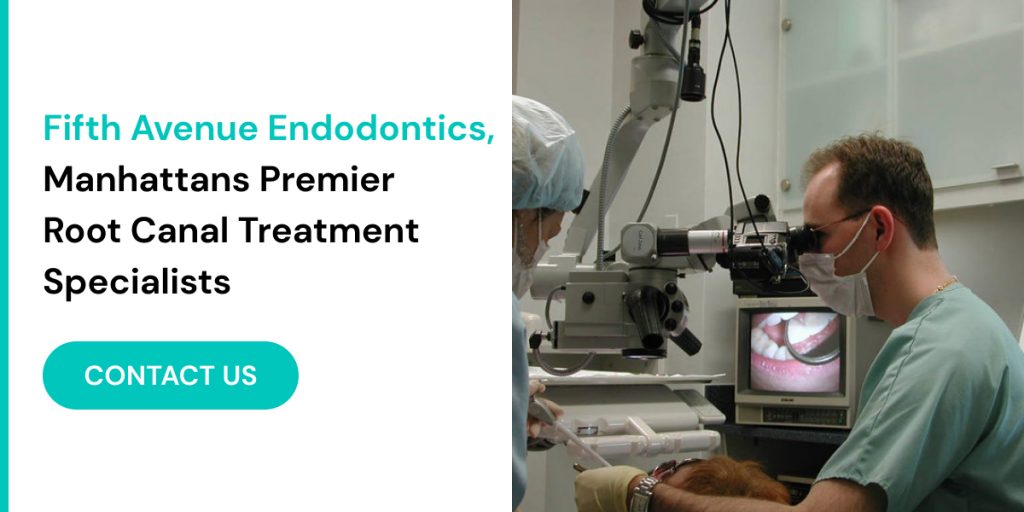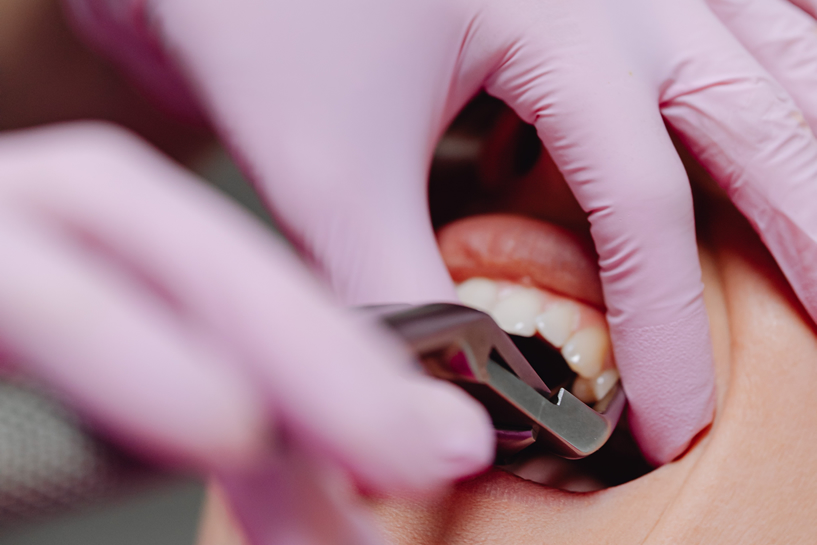Understanding the Relationship Between Smoking and Endodontic Therapy
In the realm of dental health, smoking has long been recognized as a significant risk factor, contributing to a range of oral health issues. One area where its impact is particularly profound is endodontic therapy, commonly known as root canal treatment. The chemicals in tobacco can lead to several complications, from delayed healing to increased risk of infections, which can compromise the success of the treatment.
Endodontic therapy involves the removal of infected or damaged pulp from within a tooth, followed by cleaning, disinfecting, and sealing the root canals. The success of this procedure heavily relies on the body’s natural healing processes. Smoking, however, introduces toxins that can interfere with these processes, resulting in slower recovery times and a higher likelihood of post-treatment complications.
New York surgeons have observed these challenges firsthand. Dr. Iofin of Fifth Avenue Endodontics notes that smoking can significantly impede the body’s ability to fight infections and heal properly after a root canal procedure. In this post, we will explore the specific effects of smoking on endodontic therapy and provide insights from Dr. Iofin and other experts in the field. Understanding these impacts is crucial for patients who smoke and are considering or undergoing endodontic treatment, as it highlights the importance of smoking cessation in achieving successful outcomes.
How Smoking Impacts Endodontic Therapy
Smoking can adversely affect the outcomes of endodontic therapy in several significant ways. Firstly, smoking reduces blood flow to the gums, which impairs the body’s ability to heal after a root canal procedure. The nicotine and other harmful chemicals in tobacco cause blood vessels to constrict, limiting the supply of oxygen and essential nutrients to the healing tissues. This compromised blood flow means that smokers are more likely to experience complications such as infection and delayed healing.
In addition to reduced blood flow, smoking has been linked to an increased risk of developing periodontal disease. This condition weakens the supporting structures of the teeth, such as the gums and bone, making it more challenging for endodontic treatments to succeed. Periodontal disease, exacerbated by smoking, can cause gums to recede, exposing the roots of teeth to further decay and infection. This complicates the post-treatment environment and can lead to the failure of the root canal therapy.
The toxins in tobacco smoke can also directly damage the tissues in the mouth, leading to a higher likelihood of treatment failure. These toxins can cause inflammation and damage to the cells responsible for tissue repair. Smokers often exhibit a reduced immune response, which hinders the body’s ability to fight off infections and properly heal after a dental procedure. The presence of harmful substances such as tar and nicotine in the oral cavity can create a hostile environment for healing, making it difficult for the tissues to recover fully.
Furthermore, smoking affects saliva production. Saliva plays a crucial role in maintaining oral health by neutralizing acids produced by bacteria, washing away food particles, and providing disease-fighting substances throughout the mouth. Smokers often have reduced saliva flow, which can lead to dry mouth and create a breeding ground for bacteria. This increase in bacterial presence can further complicate the healing process after endodontic therapy, increasing the risk of infection and treatment failure.
Overall, the multifaceted impact of smoking on oral health significantly impedes the success of endodontic therapy. Patients who smoke face higher risks of complications, prolonged recovery periods, and a greater likelihood of unsuccessful treatment outcomes. Understanding these risks underscores the importance of smoking cessation for those undergoing root canal treatment, as it can dramatically improve the prognosis and long-term health of the patient’s teeth and gums.

Delayed Healing and Increased Infection Risks
One of the primary concerns with smoking is its profound impact on the body’s immune response. Nicotine and other chemicals in cigarettes can suppress the immune system, making it significantly harder for the body to fight off infections. After a root canal treatment, the surgical site is particularly vulnerable, and an impaired immune response can lead to more frequent and severe infections.
When the immune system is weakened, the body’s natural defense mechanisms are compromised. This is particularly critical in the context of endodontic therapy, where the removal of infected pulp and the subsequent healing process rely heavily on a robust immune response. Nicotine constricts blood vessels, reducing blood flow and thereby limiting the delivery of essential nutrients and oxygen to the affected area. This constriction impedes the body’s ability to repair tissues efficiently and ward off microbial invaders that can cause infections.
Furthermore, smoking can alter the composition of oral bacteria, promoting the growth of pathogenic species that can exacerbate infections. The presence of these harmful bacteria in the mouth increases the risk of post-operative complications, as the body struggles to control bacterial proliferation in a weakened state. The introduction of tobacco toxins into the oral cavity creates an environment conducive to bacterial growth, which can complicate the healing process.
Dr. Iofin, a leading endodontist at Fifth Avenue Endodontics, emphasizes the importance of smoking cessation for patients undergoing root canal therapy. “Quitting smoking significantly improves the chances of a successful outcome. It enhances the body’s natural healing processes and reduces the risk of complications,” he advises. By quitting smoking, even temporarily, patients can bolster their immune systems, improve blood flow, and create a more favorable environment for healing.
In addition to immune suppression, smoking delays the healing process by interfering with the formation of new blood vessels, a process known as angiogenesis. New blood vessels are crucial for supplying the surgical site with the necessary components for tissue repair. The inhibition of angiogenesis results in prolonged healing times and increases the risk of wound dehiscence, where the surgical site reopens.
Moreover, smokers often experience higher levels of inflammation, which can further impede healing. Chronic inflammation caused by smoking exacerbates tissue damage and hinders the regeneration of healthy tissue. This prolonged inflammatory response can lead to complications such as chronic pain, swelling, and increased risk of infection.
Overall, the delayed healing and increased infection risks associated with smoking underscore the critical need for patients to cease smoking before and after undergoing endodontic therapy. Doing so can significantly enhance the body’s ability to heal, reduce the likelihood of post-operative complications, and improve the overall success rate of the treatment.
The Role of Nicotine in Compromising Dental Health
Nicotine, the addictive substance in tobacco, plays a central role in the negative effects of smoking on dental health. Its presence in the body leads to several detrimental outcomes, particularly concerning the success of endodontic therapy. One of the primary actions of nicotine is the constriction of blood vessels. This vasoconstriction reduces blood flow to the gums and other oral tissues, limiting the delivery of essential nutrients and oxygen necessary for healing. This restricted blood flow can significantly prolong the recovery period post-treatment, as the body struggles to repair the surgical site with inadequate resources.
Furthermore, nicotine has a profound impact on the formation of blood clots, which are crucial for wound healing. Blood clots act as a protective barrier, preventing pathogens from entering the surgical site and initiating the healing process. Nicotine interferes with clot formation, leaving the treated area exposed and more susceptible to infection. This is particularly problematic for endodontic therapy, where successful healing of the treated area is vital for the overall success of the procedure.
In addition to its effects on blood flow and clotting, nicotine can also impair the immune system. It reduces the activity of immune cells, making it harder for the body to fight off infections. This immunosuppressive effect further complicates the healing process after a root canal treatment, as the body’s defenses are weakened at a time when they are most needed.
Moreover, nicotine’s influence extends to the cellular level, where it affects the function and proliferation of fibroblasts—cells that play a key role in wound healing. Fibroblasts are responsible for producing collagen and other extracellular matrix components necessary for tissue repair. Nicotine exposure can inhibit fibroblast activity, leading to delayed tissue regeneration and compromised healing outcomes.
The long-term effects of nicotine on dental health are equally concerning. Chronic exposure to nicotine can lead to periodontal disease, characterized by inflammation and degeneration of the gums and supporting structures of the teeth. This condition not only jeopardizes the success of endodontic therapy but also increases the risk of tooth loss and other oral health complications.
In summary, the role of nicotine in compromising dental health is multifaceted and profound. Its effects on blood flow, clot formation, immune response, and cellular function create a challenging environment for healing post-endodontic therapy. Understanding these impacts highlights the critical need for smoking cessation, particularly for patients undergoing root canal treatment. By eliminating nicotine from the body, patients can enhance their healing potential, reduce the risk of complications, and improve the overall success rate of their dental procedures.
Insights from New York Endodontic Surgeons
New York endodontic therapy at Fifth Avenue Endodontics, have observed a clear correlation between smoking and poorer outcomes in endodontic therapy. These professionals advocate for smoking cessation not only for overall health but also to enhance dental treatment success.
Dr. Iofin explains, “Patients who smoke are at a distinct disadvantage when it comes to healing and recovery. By quitting smoking, even temporarily, patients can improve their chances of a successful root canal treatment and overall oral health.”
Recommendations for Smokers Undergoing Endodontic Therapy
For smokers facing endodontic therapy, New York surgeons offer several key recommendations to improve treatment outcomes:
- Quit Smoking Before Treatment: Ideally, patients should quit smoking several weeks before undergoing root canal therapy. This allows the body to begin repairing the damage caused by smoking and enhances the immune response.
- Seek Professional Support: Quitting smoking is challenging, but numerous resources are available to help. Patients are encouraged to seek support from healthcare providers, who can offer strategies and medications to assist in smoking cessation.
- Maintain Good Oral Hygiene: Excellent oral hygiene is crucial for all patients but is especially important for smokers. Brushing, flossing, and regular dental check-ups help mitigate some of the adverse effects of smoking.
- Follow Post-Operative Care Instructions: After a root canal procedure, it’s vital for patients to adhere to their dentist’s post-operative care instructions meticulously. This includes taking prescribed medications, avoiding certain foods, and keeping the surgical site clean.
- Regular Dental Visits: Continuous monitoring by a dental professional is essential for identifying and addressing any complications early. Regular follow-ups ensure that any issues can be managed promptly, reducing the risk of treatment failure.
Long-Term Benefits of Quitting Smoking
Beyond the immediate benefits for endodontic therapy, quitting smoking has profound long-term advantages for oral health. Former smokers experience improved gum health, reduced risk of oral cancers, and better overall dental outcomes. The positive impact on general health, including reduced risks of cardiovascular disease and respiratory issues, further underscores the importance of smoking cessation.
Dr. Iofin of Fifth Avenue Endodontics underscores the holistic benefits of quitting smoking: “The decision to stop smoking not only improves your dental health but also enhances your overall quality of life. It’s a critical step toward achieving better health outcomes across the board.”

Conclusion: Enhancing Endodontic Outcomes for Smokers
Smoking poses significant challenges to the success of endodontic therapy, but with the right strategies and professional support, patients can improve their chances of positive outcomes. New York surgeons, including those at Fifth Avenue Endodontics, recommend smoking cessation as a crucial step for anyone undergoing root canal treatment. By quitting smoking, even temporarily, patients can enhance their body’s ability to heal, reduce the risk of complications, and achieve better long-term dental and overall health.
If you are a smoker facing endodontic therapy, consider these recommendations seriously. The benefits of quitting smoking extend far beyond your dental health, offering a pathway to improved well-being and a healthier future. Consult with your endodontist and healthcare provider to develop a comprehensive plan for smoking cessation and successful treatment outcomes.

